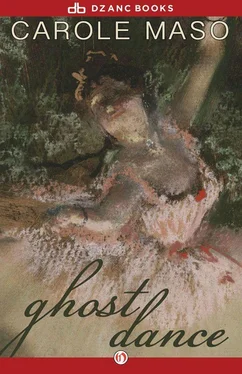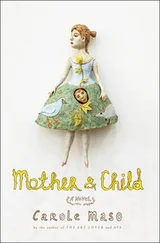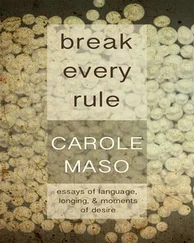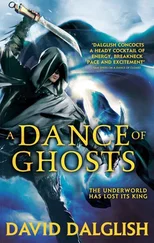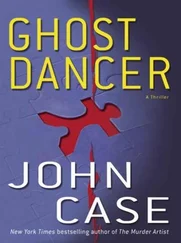Would it all go on forever? I asked myself, and she seemed to look at me and nod. My mother accepted her life as children do, knowing no other one. She never complained. Don’t cry for me, she said with her eyes, filled with wonder, for she w as thrilled today by the w hite, the dramatic clouds, and her son, w ho now approached the podium. “Look,” she gasped. Her voice was high and light. “Oh, look,” she lifted her arm.
“There is no better life,” her arm said. No, that was not it. “There is no other life.” That was the terrible thrill in her voice, I thought. That is what the outstretched arm pointing to the sky said. She was frightening, I thought, this wild-haired, uncompromising woman. She was irresistible. And the words stayed with me.
“There is no other life.”
But here was Fletcher. And there was Father. It was not true. People lived other lives. And then I heard it, the whole sentence, as Fletcher opened his speech and looked out at his audience: “There is no other life for us.” And I knew she was right.
“It is no secret,” my brother said.
As he spoke the sky seemed to take on a surreal hue, purplish, as if it were serving him, through some prearranged agreement, as a visual aid. It could not have done a better job had it received a copy of the text of the speech in advance. It looked suitably treacherous and, when it was supposed to, it gradually lightened and shone bright for the finale. In those days the whole world seemed to accommodate my brother, taking its cues from him. In those days he was capable of anything. People knew this somehow, and they trusted him.
My father seemed to be studying his son. It was as if he had never seen him before, as if he were going to paint a portrait of him and wanted to see his subject in motion, from afar, so as to comprehend his true nature, so concentrated was his look. Perhaps looking at Fletcher from a distance, he understood something about himself. He felt proud of him, without quite knowing why.
“This is our home,” Fletcher said, “and we must ask for it back — back from Hooker Chemical, back from Johns-Mansville. This is our home.”
As he finished his speech, an elderly couple behind us remarked that if this young man were on their side maybe there actually was a chance. And even those way in the back, the stragglers, the joggers, the onlookers, the Con-Ed executive out for a stroll with his family, mumbling under his breath, even he knew that my brother was someone to be dealt with. For Fletcher’s plea was for common sense, for respect. People relied on Fletcher. They stood up and clapped. My mother’s eyes clouded.
Fletcher looked tired and pale as we neared him through the crowds. Maybe we all asked too much of him, talked too much, leaned too hard, expected far more than we should have. He was my little brother. Maybe we wanted more than anyone could have possibly given, asked him to be strong once too often.
“Fletcher!” I called to him.
“Vanessa? Va-nes-sa!” he cried. “Mom! Dad! There you are! Over here! Come this way! Over here!” he shouted, flapping his arms around his head. He looked suddenly revitalized.
“You were great!” I shouted to him.
He too was dressed in white. He beamed at me.
Someone tapped me on the shoulder. I turned. A little Gray Panther squeezed my hand tightly. “Good luck to you,” she said, “and to that fine young man.”
“Thank you,” I told her, “thank you very much,” and, looking back to the stage where my brother still stood surrounded by people, I saw it now finally: my mother’s wonderful white bird of peace.
It was Fletcher.
It is morning. The man stands facing east and watches as the sun, that great disk on the horizon, flares, rises up, and slowly climbs the enormous sky. This is what he loves: a succession of colors — deep umber, dark blue, lightening to rose, smoke gray. He lets his eye linger for a long time on the mesa, the sunlit cliffs, the loping hills. He sees many things: buffalo, bison, doe. Rabbit, quail. Dragonfly, spider. He breathes deeply, smells sweet grass and clover. He looks to the sky. Two eagles dip and spin in the morning light. The clouds live in him; the wind. The shining river runs through him. He smiles, touches his palm, and looks out at the valley.
The last time I saw my brother he was dressed in a charcoal-gray suit and following a fat man down a street in Mystic, Connecticut.
I knew nothing about this large man who came to me now more and more often, offering not comfort, I thought, not pleasure, but something else.
“Jack,” I said, and as I said it I felt unsure as to whether or not that was his real name. “Why don’t you ever tell me anything about yourself? I don’t know anything about you. Why is it all such a big secret?”
“The facts,” he laughed, “would only get in the way. What do you want to know? About my dreary life in some suburb? The name of my wife? My 2.5 children? What I do? The details only make us lazy. The details only limit us. We can be anyone we want. Don’t you see that? Please,” he said, “please start over with me.”
“Who are you?” I whispered.
“Anyone you want,” he said. “Invent me. Use your imagination. I shall not exist if you do not invent me.”
“But I know nothing about you.”
“On the contrary,” he sighed, “already you know me too well.”
He had barely been able to fit through the hotel room door. His massive shoulders had made it impossible for him to enter without turning to the side, and he had to bow his head to get in. I have never seen such an enormous man — his neck like the trunk of a tree, his head the head of an animal, a horse or a cow, his skin like leather. A man like that eats a dozen eggs for breakfast, two gallons of milk, three steaks. When he goes to the refrigerator it looks like a small white box next to him.
He moves slowly through the heat. A man like that loses his footing easily. A man like that causes a thousand small deaths without even being aware of it.
A man like that is so enormous with power that, when he dreams of a faucet dripping, a whole town is submerged under water. When he dreams of the death of a small house pet, the blood of thousands of innocent people is shed in some Latin American country. A man like that speaks softly, for he knows to raise his voice would cause the people whom he loves to go deaf.
A man like that does not ht easily into a family. I lis brothers are jealous of his tremendous appeal to women. His mother wonders from what love he fed to become this size. He is large hearted, too, she thinks. His father puzzles over what in him made this fantastic man. His brothers do not dare try to emulate him.
Any curious woman would want to know, need to know, what it would feel like to be crushed in his arms, in his thighs. Anyone would wonder what it would feel like to die a little under him.
“Mom,” I’d yell in the dark, having woken from a nightmare. “Mom, Mom.” But she would not come. She must have been working. It had been silly of my father to worry so much about keeping silence, for w hen she was really writing, she heard nothing.
She is not far away on the day I fall off my bicycle, my knee shredded, bits of the driveway embedded in the wound. She appears from around the corner when she hears me crying. She is wearing her gardening clothes.
She helps me up, looks at my knee, kisses me on the ear, and whispers, “Your dress is magnificent.”
“Your dress is magnificent,” I whisper back to her. I smile a little, the tears still wet on my face. My mother is inventing just for me.
“You may tell your carriage to leave,” she says, and she w heels my bicycle into the garage.
“The ballroom is gigantic!” I say.
Читать дальше
